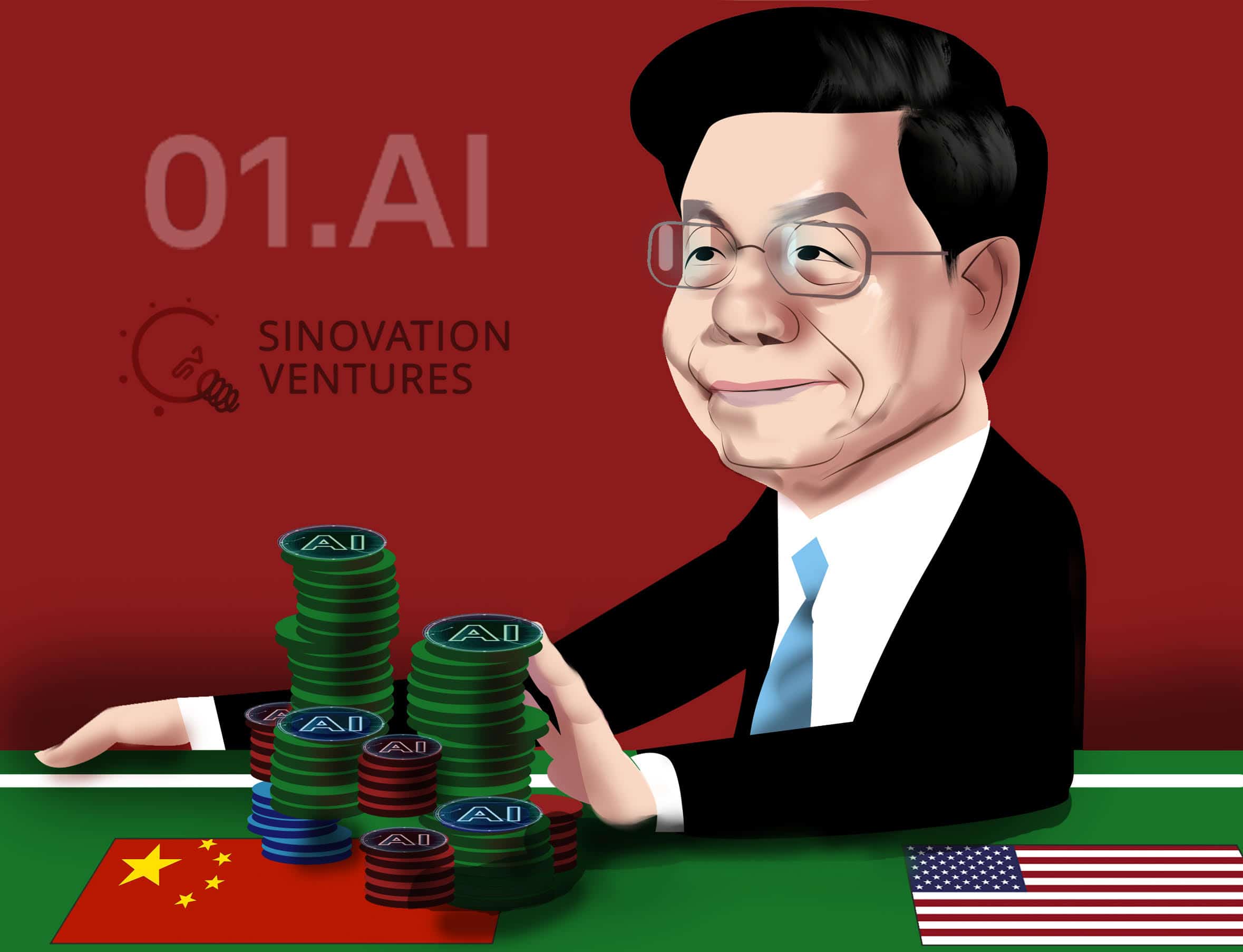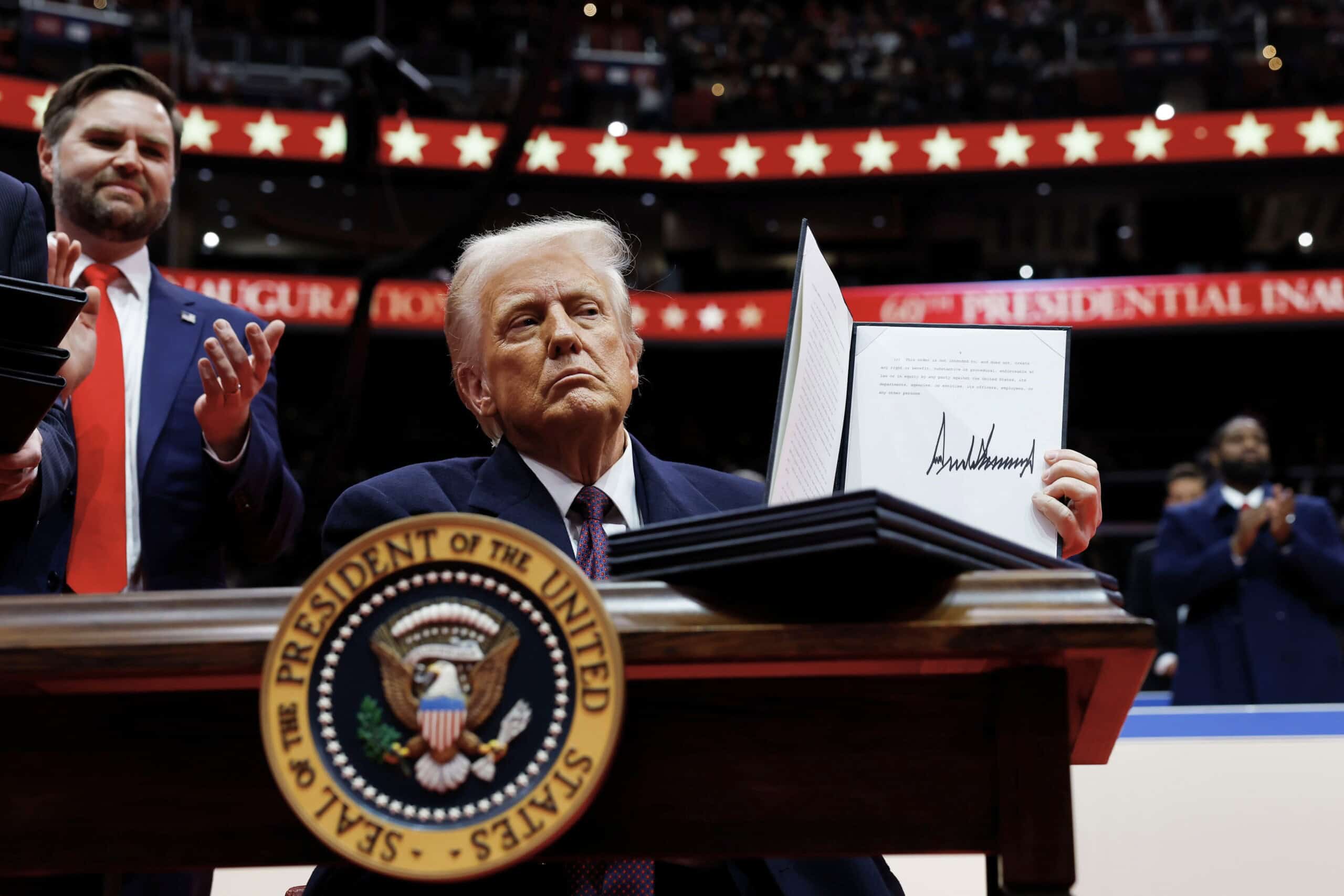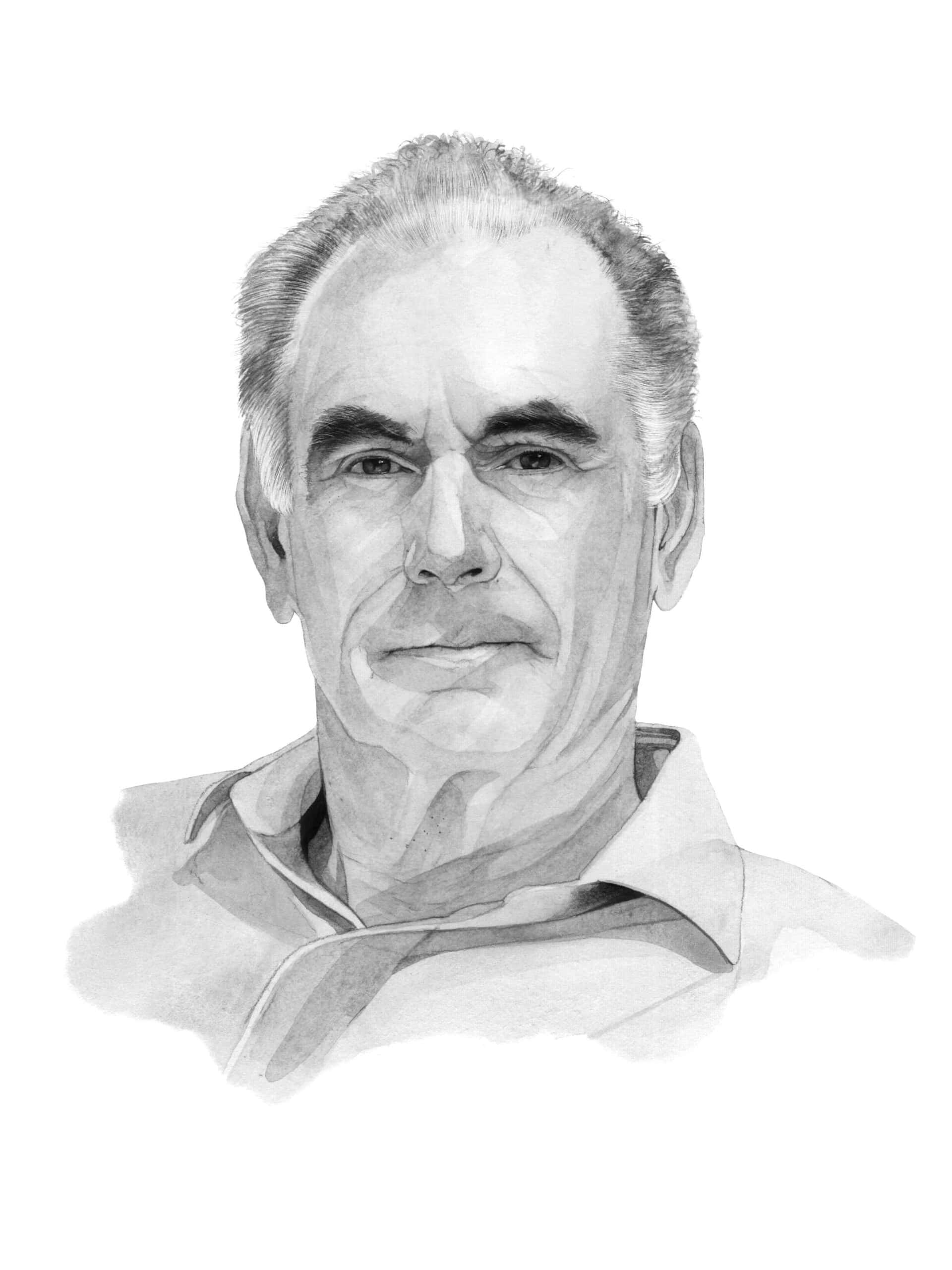Susan Shirk is a former U.S. government official and one of America’s leading scholars of modern Chinese politics. She is a research professor in the School of Global Policy and Strategy at the University of California, San Diego, where she chairs the 21st Century China Center. She first traveled to China in 1971, with the Committee of Concerned Asian Scholars. From 1997 to 2000, she served as a U.S. Deputy Assistant Secretary of State in the Bureau of East Asia and Pacific Affairs. Her books include China: Fragile Superpower, The Political Logic of Economic Reform in China, and Changing Media, Changing China. What follows is a lightly edited Q&A.
Q: You have written extensively about Xi Jinping’s turn to a “personalistic rule.” What do you mean by that term and how do you think that shift is impacting Chinese domestic politics?
A: Xi has concentrated authority in his own hands. He has become the leader of most of the “Leading Small Groups,” which make decisions and implement policy. He has formally made himself the lingxiu, which some people translate as führer [Adolf Hitler’s title in Germany’s Third Reich]. He has engineered the end of the regular transfer of power at the top. And his ideology is being studied everywhere by everyone — school children, party members, etc.
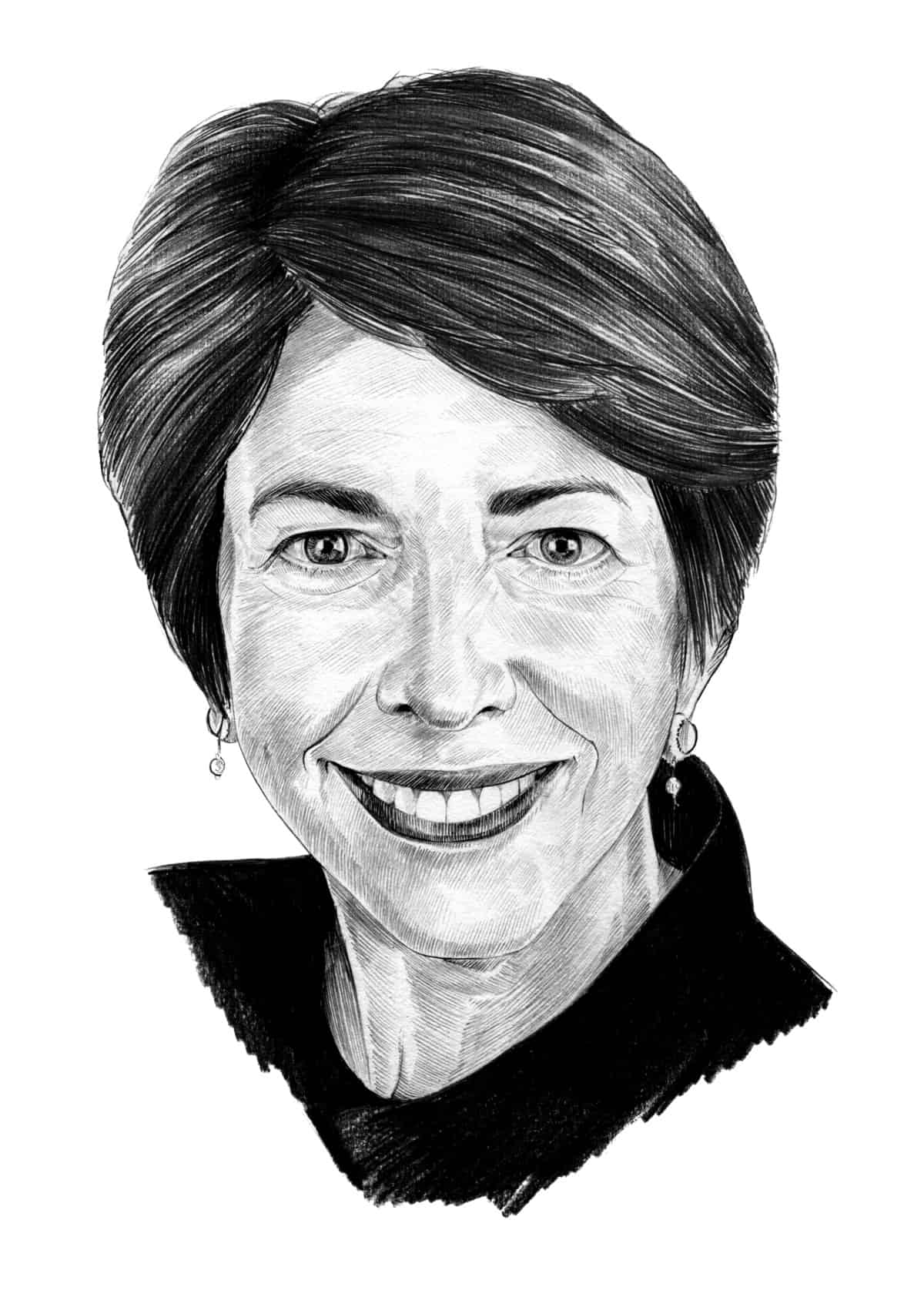
Illustration by Lauren Crow
It’s really a very different leadership system than what you had during Hu Jintao. Under Hu, from 2002 to 2012, the Party really tried to make collective leadership operate in a more systematic, predictable manner, in which power was shared by a top leader and an oligarchy. That was what Deng Xiaoping envisioned. After Mao died, Deng made a point of not criticizing Mao as an individual, but rather criticizing the Mao system, which he described as an overconcentration of authority that led to arbitrary decision making. The tragedy of the Great Leap Forward, for example, was that the problems in agriculture and food distribution that eventually led to famine were not reported back to Mao Zedong. Instead, everyone wanted to prove their loyalty.
Now, Xi’s personalized dictatorship has forced all the other politicians and appointed officials to show loyalty. It also leads to an echo chamber effect. Xi may not be getting accurate information about what is actually going on in the system, because everyone wants to be giving him good news and make themselves look good. Xi has made a number of serious policy mistakes through this type of arbitrary decision making that are causing a kind of backlash both domestically and internationally.
| BIO AT A GLANCE | |
|---|---|
| BIRTHPLACE | San Antonio, Texas |
| EDUCATION | Mount Holyoke College, University of California Berkeley, Massachusetts Institute of Technology |
| FIRST TRIP TO CHINA | 1971, with the Committee of Concerned Asian Scholars |
| CURRENT JOB | Research Professor of Chinese Politics at University of California, San Diego, and chair of the 21st Century China Center |
Can you give a few examples of Xi’s mistakes?
One example is Xiong’an, the new capital city. [Located roughly 60 miles from Beijing, in Hebei, the new city is being pushed forward by Xi Jinping himself and is expected to be the latest modern urban center in China, housing some government agencies that are competing for space in Beijing.] It cost a lot of money to build, and no one wants to go there. Autocrats all across the world have done similar things, wanting to create a capital in their own image.
Another example is the Belt and Road Initiative, and the way it is being carried out, because it is Xi’s vanity project. The initiative can be characterized as overreach — it’s being carried out in an exaggerated way that ends up being costly to China’s national interest. Domestically, everybody just tried to bandwagon on it in order to get some of the pork — the loans and the benefit for their own part of the country. Internationally, some countries originally welcomed the loans for the infrastructure. But now, they’re not able to repay the loans in some places, especially after the economic crisis triggered by Covid-19. Also, part of the price of joining in the Belt and Road Initiative appears to be [seeming to] become a cheerleader for Xi and the Chinese model, which a number of countries really don’t want to do.
The expansion of the artificial islands in the South China Sea is another mistake. It has been very damaging to China’s relationship with its neighbors and China’s relations with the United States. It has really changed the narrative about Chinese intentions — people see China as much more aggressive. Xinjiang is another mistake. The re-education camps in Xinjiang are an extreme attempt to solve the problem of managing Uighur and Tajik unrest. It is taking things too far. I don’t know if the camps are at all controversial in China, so it may not be costly in terms of domestic political support, but it certainly is costly internationally.
These are all examples of what I would call, and Deng Xiaoping would call, “arbitrary decision making.” It is leading to China’s overreach, which is sparking resistance, criticism, and backlash outside of China.
Domestically, Xi is not sharing the patronage with other members of the collective leadership. He is appointing only his clients, his followers, or people he worked with before he became the number one leader. Other parts of the party elite now feel that they don’t have any patronage. The anti-corruption campaign has even put the security of the other leaders at risk, because Xi has the discipline commission and the supervision commission all in his hands. Without power sharing, it makes the Chinese system a lot more vulnerable in the future. I don’t see any sign right now of any organized elite resistance to Xi. But while I can’t tell you what will happen, when it happens I won’t be surprised.
So you see splits in the leadership as the biggest threat to the system Xi has developed?
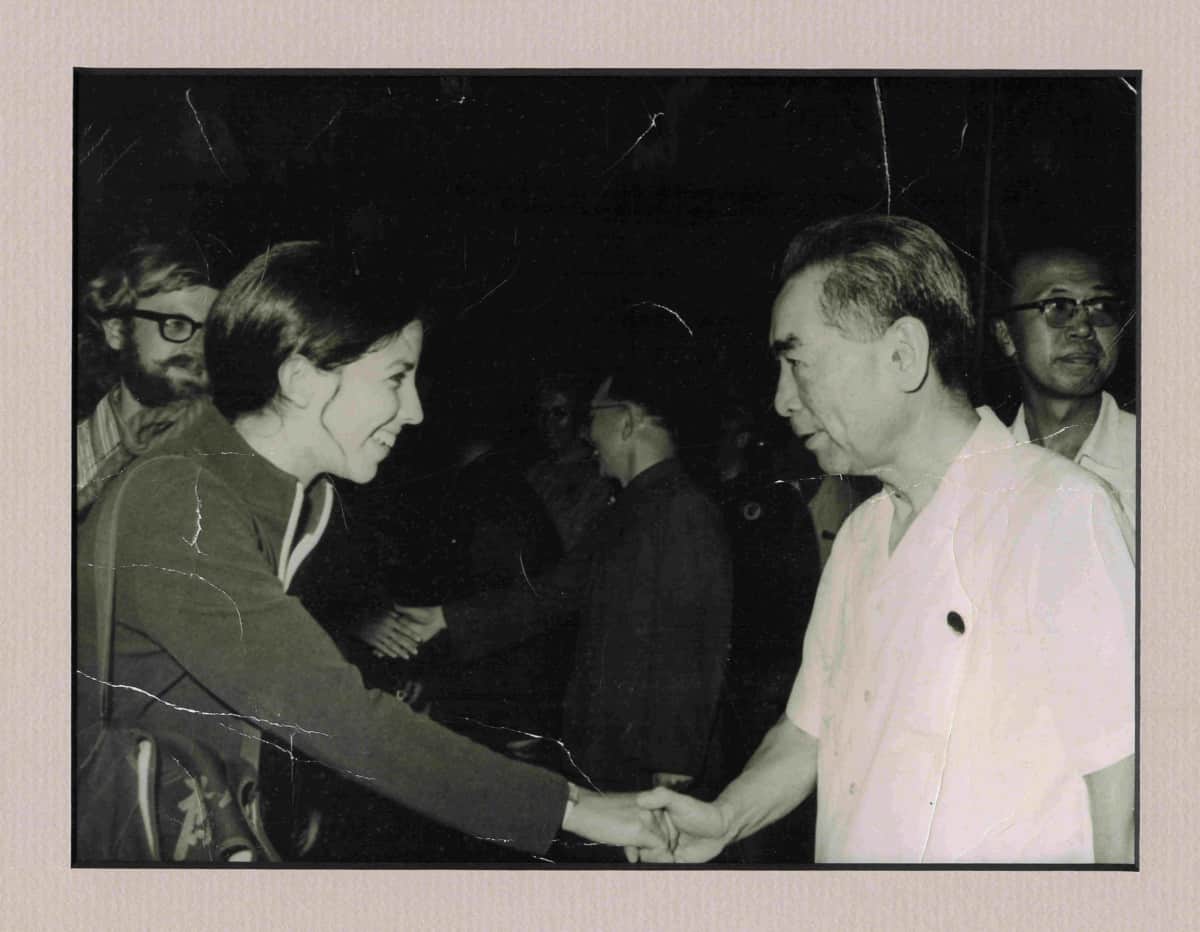
Credit: Courtesy of Susan Shirk
I do see splits in the leadership as being more dangerous than some bottom up, popular revolution. But I also believe that the middle class is a wild card. We don’t know how the middle class feels about this type of system. We do have some survey results that show that the urban public was not very supportive of the revision of the constitution to eliminate term limits for the president. Does the Chinese middle class, which is 400 million people and growing, really want their kids spending so much time in school learning Xi thought and the Chinese version of Marxism? Or do they want them to learn skills that will help them get a good job or even go abroad to study? Many in the middle class travel abroad and are quite cosmopolitan. How do they feel about China going backwards to a system that has some resemblance to the Mao era? To them, it probably feels like not a very modern system. I question whether or not the middle class will be satisfied with this type of government, especially if the economy isn’t producing improvement in living standards because growth is slowed.
Do you think slowing economic growth presents a stability problem for Xi?
According to modernization theory, as a population becomes more educated, modernized, and cosmopolitan, there is demand for political participation and the ability to choose their own leaders. This is the whole theory of modernization and democratization. That is an overly simplified notion, and we see a lot of cases across the world of authoritarian retrogression. Fragile democracies have slid back into autocracy. Modernization theory has been critiqued by a lot of people, but there is still something to it. So, if the Chinese middle class no longer feels that the CCP is delivering the goods and that their living standards and quality of life are no longer improving, then they could potentially start to be more critical of the leadership and political system. The middle class drove democratization in Korea and Taiwan. The question is, is that dynamic still applicable for China?
On the other side, the Party’s control of career opportunities allows them to co-opt people, because you’ve got to be a Party member to get ahead, certainly at state-owned enterprises and government jobs. You also have the repression and demobilization of civil society, organized interest groups and NGOs. It’s really hard to predict, but if there is economic distress in the middle class, it will be very interesting to see what the political consequences are. In terms of the risks to the regime, I see that as coming more from potential splits in the elite than from some bottom-up revolution.

Credit: Courtesy of Susan Shirk
What about the succession question?
There is no sign of a successor on the horizon. My expectation is that there will not be a succession in 2022, and that will raise the whole question of dictatorship in China. I think you might see some pushback from the elite at that point. We might never know about it; it may happen under the veil of secrecy and inside the black box, but everyone’s going to be looking for it.
Even now, it’s halfway through 2020, and people are looking for signs of differences in opinion within the elite over Xi Jinping’s performance. That was part of the context for the whole Covid-19 thing. Why has the praise of Xi and the system been so politically sensitive in China and internationally? To me, that says that it is part of Xi’s campaign to stay in power past the 20th party congress in 2022. I am struck by the fact that the issue of how China has performed in managing Covid-19 and Xi’s leadership in that effort has become so politically sensitive — people don’t dare speak a word about it. What’s that all about? If Xi already had a successor, and everyone expected in 2022 that he was going to peacefully hand over power to that successor, I don’t think this issue would have become so politically sensitive and so tightly controlled by the propaganda officials.
You’ve also written that Chinese domestic politics impacts Chinese foreign policy towards America. How has this dynamic changed under Xi, especially today?
Xi has tried to mobilize domestic, anti-foreign nationalism. Certainly after Covid-19, he is trying to distract the public from domestic problems by diverting attention to foreign targets. In the 2000s, this nationalism was focused on Japan. Now, under Xi, it has broadened out, and he is daring to focus it on America. Admittedly, U.S. policy under the Trump administration has been hostile. The administration takes the sledgehammer approach and tries to confront China in every domain and continent. That approach has made it easy for Xi to stir up anti-American nationalism.
| MISCELLANEA | |
|---|---|
| FAVORITE CHINA BOOKS | Chinese Lessons by John Pomfret, The Execution of Mayor Yin by Chen Ruoxi |
| FAVORITE MUSIC | Musical theater, and my favorite singer is the late Barbara Cook |
| FAVORITE FILM | West Side Story |
| WHAT FIGURE IN CHINESE HISTORY WOULD YOU LIKE TO HAVE DINNER WITH? | Li Ruihuan, the former party chief of Tianjin, because he was a fascinating transitional figure and populist who governed as if he was running for election the next year. |
How does Xi stir up nationalism?
In the beginning, it was mostly celebrating the achievements of the Chinese system and saying the successes of China’s system would eventually overtake market democracy. Xi has also let the diplomats in the Foreign Ministry and the propaganda officials criticize America. For a long time, they have tried to prevent any explicit criticism of Trump himself, because they don’t want to provoke him. But recently, they even allowed criticism of Trump himself.
What criticisms of America resonate most with the Chinese population?
UC San Diego’s China Data Lab project, “China From The Ground Up,” just published a blog post about surveys we did over the past few months compared to 2019. We found that trust in the central and local government has increased during Covid-19 and views of America have become more negative. So, clearly people in China feel that their government has served them pretty well in keeping them safe during the epidemic. The reports about the disarray in the United States, and how we haven’t been able to control the virus, presents a pretty sharp contrast. The Chinese propaganda is making the most of that.
Let’s talk about China’s response to the Covid-19 pandemic. How did the unique setup of the Chinese political system impact the initial and continuing response under Xi?
The suppression of information at the beginning of the pandemic delayed letting ordinary people know about the risks they were living with, especially in Wuhan and Hubei provinces. This undoubtedly led to more people dying. Afterwards, the local officials blamed the central government, and the central leadership blamed the local officials. But later, something was published in Qiushi, the Communist Party magazine, on what Xi said in early January. This indicated that he knew how dangerous the disease was, and yet there was no public warning until later in January. To me, and maybe to other people in China, this looks like Xi himself was part of the cover-up. That is obviously very damaging to Xi and his continued elite and mass support.
We also should acknowledge that there are certain features of the Chinese system that enabled China to control the spread of the virus pretty effectively. People in the United States are reluctant to say that, but it is true. For one thing, Xi could mobilize all the massive public security forces and the Communist Party itself in every neighborhood throughout China right down to the countryside. He could use party members to enforce the quarantine and stop all travel. There was also social policing, where you have ordinary citizens in every apartment building working with the Party to control the population. In ordinary times, people don’t like these people very much. They think they are nosy and interfere in private life. These are the same people who enforced the “one-child” policy, so they got right into people’s family planning and sex lives. But in an emergency like this, these were the people who kept everybody safe. In addition to enforcing controls over movement, they also got people who were sick to the hospital, and they made sure people got food and masks. The social policing was a very effective ingredient in the success of the Chinese system in the control of the virus.
But then, China tried to deflect blame onto the U.S. Army, which is a totally ridiculous conspiracy theory. Overall, they really lost the opportunity to rebuild their reputation as a benevolent power. Whenever the Chinese government shipped medical supplies to another country, they insisted that photos be taken and that the other country express gratitude to Xi and express respect for China’s management of Covid-19. This was a form of overreach and should fall into the category of Xi’s mistakes. It was a great idea to share medical supplies, and a great opportunity to strengthen China’s international reputation, but instead they took it too far. And that ended up being costly.
But here is the puzzle: Did the Chinese government overreach because Xi Jinping himself wanted to take things too far and burnish his personal reputation? Or did it overreach because the propaganda department or foreign ministry thought that’s what Xi wanted? Because the Chinese system is so opaque, we don’t really know for sure who is to blame for the overreach.
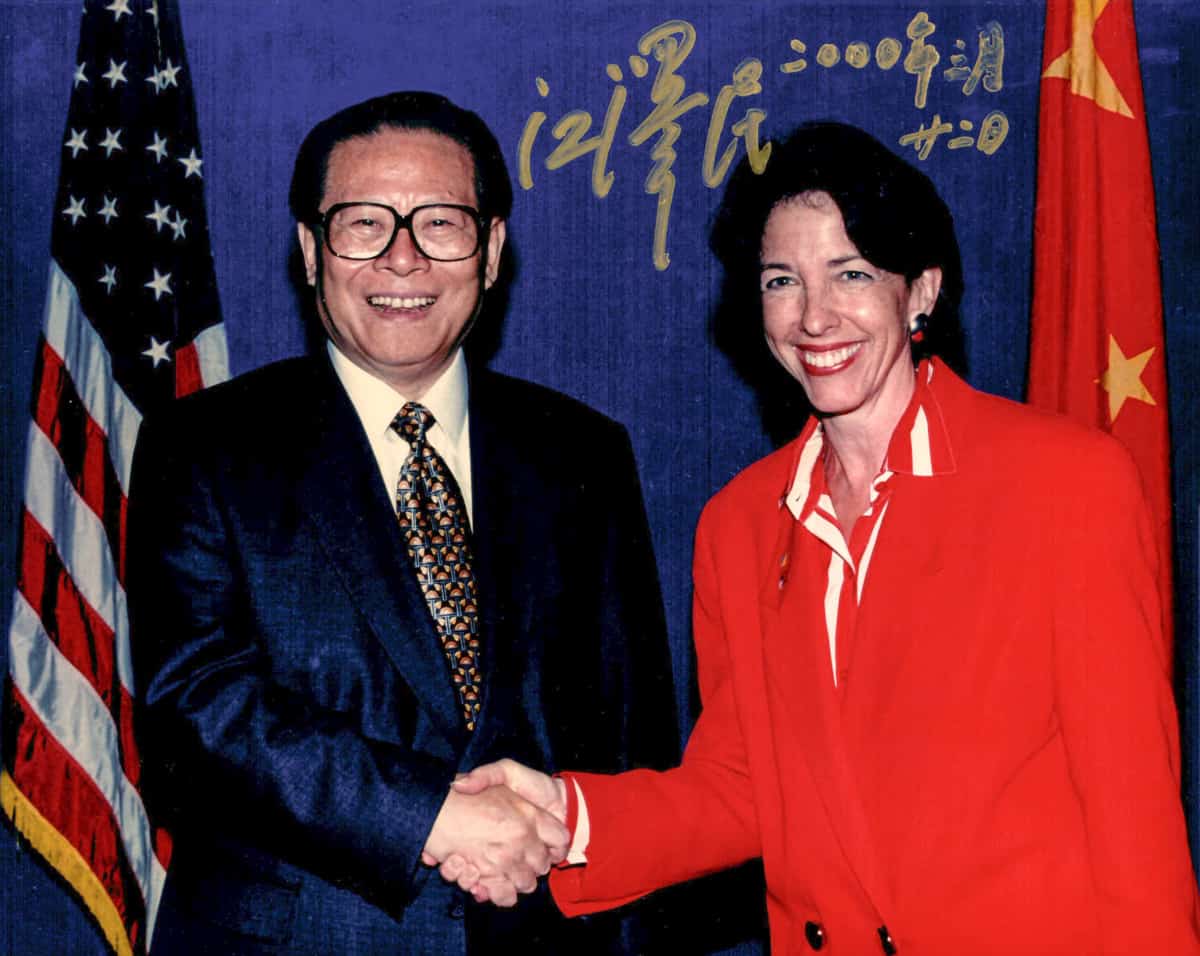
Credit: Courtesy of Susan Shirk
You’re exploring this puzzle in the new book you’re working on, which is entitled Overreach: How China’s Domestic Politics Derailed its Peaceful Rise. Can you talk a little bit about the history you’re tracing?
The book goes back to the Hu Jintao era [2002-2012], and shows how China’s international and domestic overreach begins in the mid-2000s, even before the global financial crisis. The global financial crisis was an important exogenous shock, but these trends of overreach began even earlier because of the way collective leadership worked. The nine oligarchs in the Standing Committee each ran their own domain without mutual checks or checks from the leader.
The main failure of collective leadership, as it was perceived by the public and elite, was the massive corruption. Under Hu, each leader in the system was like a Communist baron, who ran his own realm independently and had the opportunity to collect lots of rents. Every sector became very corrupt, and the guys at the top were raking in substantial amounts of wealth including gold and jewelry — it was a kleptocracy. The public was disgusted by it and many in the party were disgusted by it. The second failure was lack of coordination, as policies were out of sync with one another. There was a lot of criticism about the Hu era being a lost decade in terms of reform, which then helped Xi come in and make the case that it was going to take strong centralized leadership to revive reforms and clean things up. But he didn’t push reforms, and instead doubled down on the overreach, both internationally and domestically. So, the book is about how both collective leadership and personalistic dictatorship have led to overreaching.
But I am not working enough on my book because I am spending far too much time trying to do my little bit to stabilize U.S.-China relations before it gets even worse. It was so disheartening to see how hostile U.S.-China relations had already become when the pandemic hit. Neither country could muster even a modicum of willingness to coordinate their efforts with the other. The U.S. and China worked very well together on previous epidemics, like Ebola and H1N1. Even in the depths of the Cold War, the United States and the Soviet Union managed to work together to eradicate smallpox from the world. But now, the U.S. and China can’t do anything. I was so distressed about that, so I have been trying my best to help out.
How so?
Doing my little bit means working with the Task Force on U.S.-China Policy, along with Orville Schell, to issue recommendations on how to have a smarter form of competition with China. I am also working with the UC San Diego Forum on U.S.-China Relations, which I co-chair with Kurt Campbell and Stephen Hadley. We issued a joint statement of 100 former officials — Republican and Democrat — and China experts, urging the U.S. and China to cooperate on Covid-19 to save lives. And I do a lot of speaking on Zoom and interviews like this one.
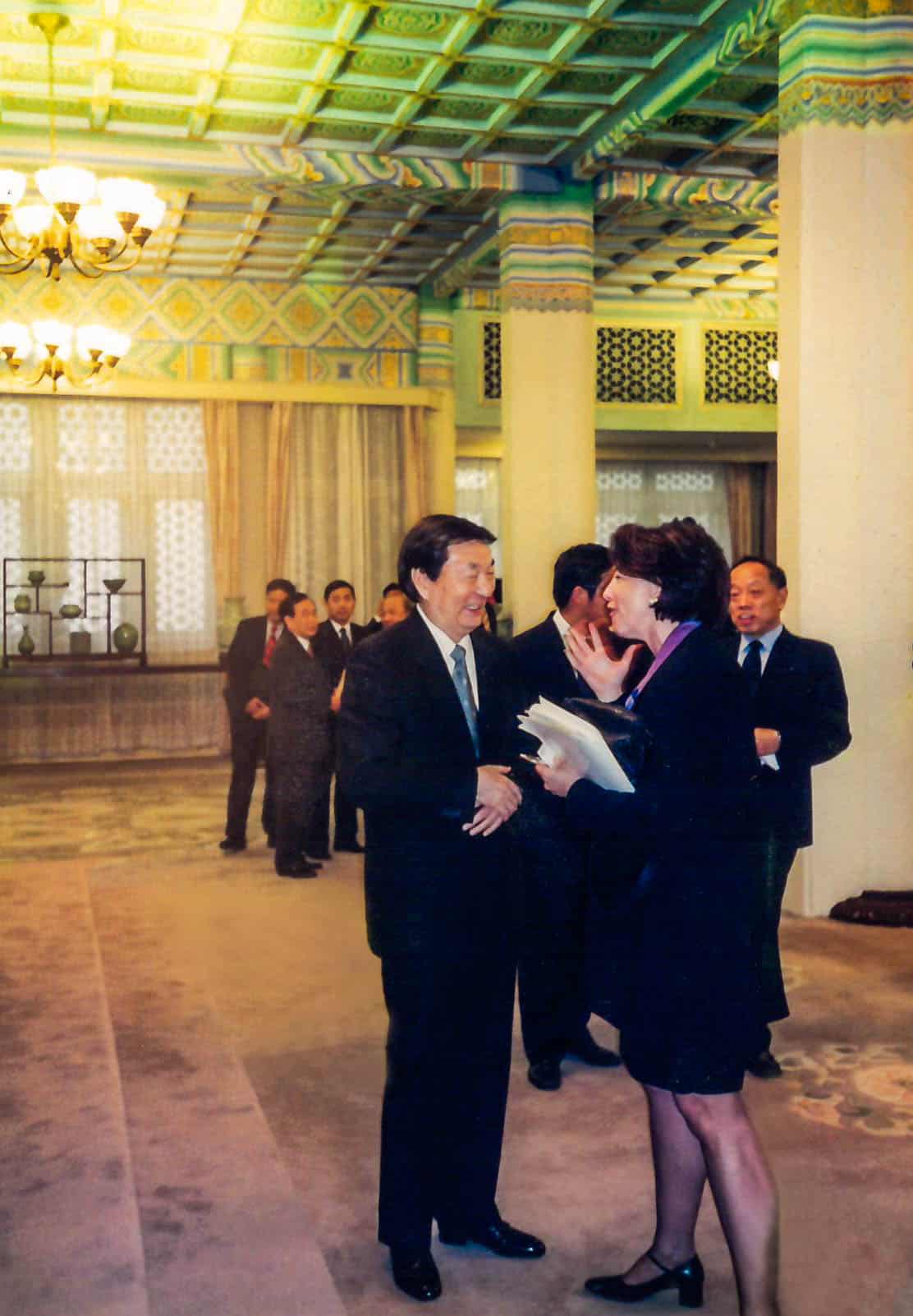
Credit: Courtesy of Susan Shirk
What do you think are the major obstacles on the U.S. side to cooperating with China?
As the United States devises strategies toward China, it is really important to have an in-depth understanding of how Chinese politics works. Having a more nuanced understanding of how China actually operates, and what Chinese public opinion is, is very important for American policy makers. Too often, we think of China as a monolith. We ask, “What does China want?” — as if there is an essential China that is inherently aggressive to the United States. We see Chinese intentions as hostile.
That is a misperception. There are a lot of moving parts in China and actually substantial internal debates about how China should get along with America. A lot of people in China used to see the U.S. as a model for what they wanted to achieve in their own country. But, step by step, we’ve harmed our own image in many different ways. Under the Trump administration, we have really degraded respect for our market democracy in China, which may have very long term negative consequences.
What about on the Chinese side? What are the major obstacles for China to cooperate with the U.S.?
More and more, Chinese see the U.S. as weak and in decline. They don’t think we count for as much anymore, and they underestimate the value of a good relationship with the U.S. for China. Actually a stable relationship with the U.S. should be China’s number one core interest. The Trump administration won’t last forever. After Covid-19, there also is triumphalism in China just like after the global financial crisis. The leaders think they don’t need to work with us; they can just go it alone.
And yet, they don’t seem capable of stepping up to global leadership either. I haven’t heard them propose a framework for how to fairly distribute vaccines or preserve global economic stability. For a global leader, they should be taking some initiative to organize collective action. They haven’t done that. The U.S. has abdicated, and they have failed at filling that vacuum. China is trying to exploit the opportunity to advance its own self-interest, rather than having a real stake in cooperation with the U.S. and other countries to address the pandemic and the crisis in global growth that is resulting from it.
Another barrier is the lack of diplomatic communication. The channels have become so attenuated. The fact that we pulled our health experts out of China when they could have been talking informally and directly to the Chinese CDC contributed to our failure to cooperate on the pandemic.
The Trump administration has acted in such a hostile manner towards China. If you look at the rhetoric of people like the National Security Advisor [Robert O’Brien] or Secretary of State [Mike] Pompeo. They are basically stating that their strategy is regime change. That makes it hard for the Chinese side to reach out to us. We have given them no off ramp, or assurance that if China would change its behavior in a positive direction, we would be ready to work with them again. We have overreacted to their overreaching. We don’t give them any incentive to make changes. Would America even notice if they did anything positive? Would they get any recognition or open hand from our side?
This helps explain their completely over-the-top actions in Hong Kong. They figure that we are completely hostile and going all out to bring about regime change. So why wouldn’t China go all the way and do what they think they need to do to keep the Party and Xi in power? They think they might as well pay the price, because how much worse will it be than what we are already doing to them? We have to impose costs, but we also have to give an indication that there is a modicum of good will on our side.
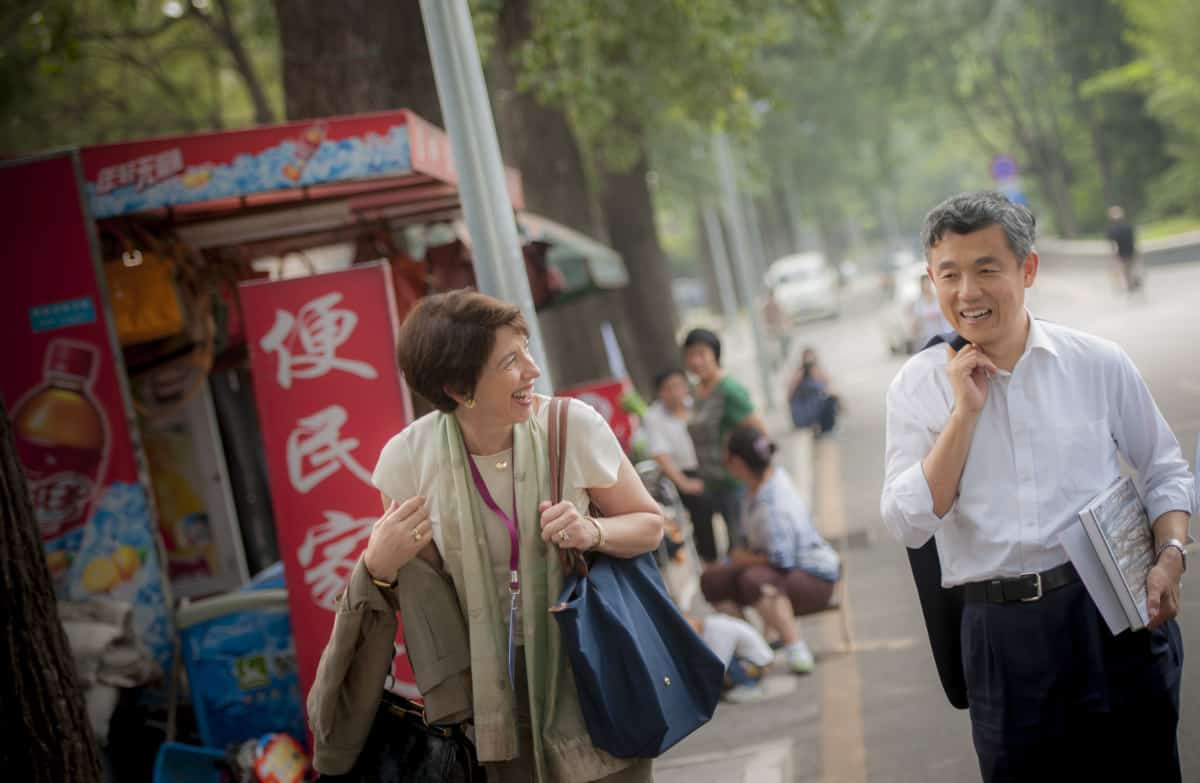
Credit: Courtesy of Susan Shirk
What about Hong Kong? How has Chinese domestic politics impacted decision making there with the national security law?
I don’t think the Hong Kong decision was driven by public opinion. This was driven by Xi’s insecurity and fear about any part of China, including Hong Kong, that is critical of him and the Party. It reflects the fragility of the Chinese system and his insecurity. China has become far more totalitarian in recent years, but then there is still a part of China where people are talking about democracy and criticizing the Chinese authoritarian system. Xi is very nervous that these ideas will penetrate into China in a way that will bring him down. He felt he really had to take extreme measures to bring about a more quiescent Hong Kong.
But I don’t know if that is going to work in Hong Kong. It is imposing a kind of system of social control that is very alien to free-wheeling Hong Kong. It is almost like a foreign occupation in Hong Kong. Instead of ending violent protest, a different kind of violence could be the result. There has been really no terrorism in Hong Kong up to now, but we may see terrorism if the democratic activists go underground.
This law is very vague and expansive, so the next step is how will they implement it? My expectation is that they won’t take a light hand. They will use the heaviest hand possible to deter opposition in Hong Kong. They are gutting the Hong Kong legal system, so there can be no judicial review by Hong Kong courts. People will be afraid, and you can already see people leaving. But you may see more hard core people engage in terrorism. Or you just may see a big brain drain, and Hong Kong will become more quiescent — for the time being anyways.

Katrina Northrop is a journalist based in New York. Her work has been published in The New York Times, The Atlantic, The Providence Journal, and SupChina. @NorthropKatrina

